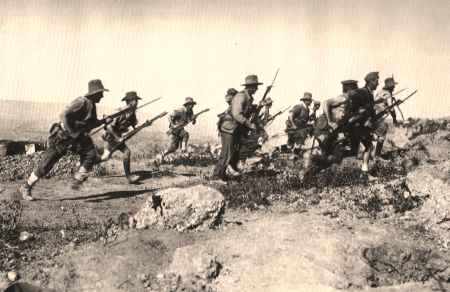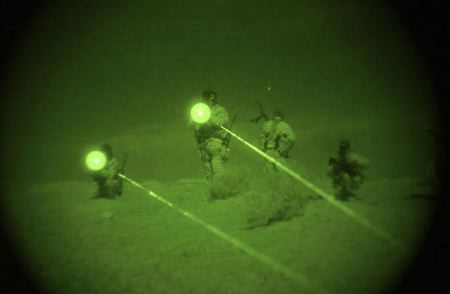On this day in 1945, Benito Mussolini paid ‘the price of tyrants’ and became an interesting public ornament for a while.

|
|||||
|
Last Friday evening Aussie blogger based in London Michael Jennings gave a talk at my place, on the subject of digital TV. What is it? Where’s it at? Where’s it going? That kind of thing. He combined knowing a lot about his subject with not talking at too great length to a degree that doesn’t always happen at these things, and I think all those present found it most informative and interesting. I certainly did. For the benefit of those as ignorant of this subject as I was at 8pm on Friday evening, I summarise as best I can something of what I learned during the next hour and a half. Around 1980, or so, governments around the world began switching to digital TV. They did this for a variety of reasons, but to a degree rare in such circumstances they all arrived at very similar technological destinations, which resulted in a new global system that involved only trivial incompatibilities. US TV corporations wanted an excuse to cling to their existing wavelengths. The British government was looking to economise on the use of existing bandwidths so that it could auction the vacated electronic real estate. In Japan they wanted to dominate the next generation of TV manufacturing. And so on. In practice it all meant the same thing. Digital TV. Which is where we now are. I now have a little box above my TV which cost £100, which has transformed a TV which emitted five channels in rather poor quality to a TV that emits something more like a dozen channels in better quality, including 24 hour news services from the BBC, from ITV and from Sky, just in time for the war. How come digital TV means more channels? Compression. Digital data can be compressed. How does that work? Well, instead of transmitting thousands of very big numbers each referring to each bit of the picture being described, you can instead emit a string of numbers many of which take the form of things like “the same as the bit next to it” or “one more than the bit next to it” and this occupies much less space. The more computing power you apply to such processes, the more you can compress, and computing power, as we all know, is leaping ahead year by year. Once all the information arrives in our TV sets we can apply steadily increasing computing power to its storage and viewing and manipulation. TV has now become something that you need to upgrade, because it is going to get better year by year, and keep on getting better. Threading its way in among this story is the related story of the rise of the DVD, to the point where it is about to dethrone the VHS tape as the standard for hiring movies from the Shop Around the Corner or buying them to have in your home. Apparently DVDs will in due couse jump to being an order of magnitude better, and I’m going to wish I’d not bought so many DVDs in their present primitive state. Oh goodie. So, an informative evening, and no doubt I’ve missed out lots. As to what all this will mean for our culture, I’ll try to have a go at that in a later posting. Or maybe postings, because it is a complicated story. UPDATE:
Yeah, 1990. I meant 1990. Although I was always a supporter of the armed liberation of Iraq primarily on the grounds that overthrowing a tyranny is justification in and of itself, I have always been highly sceptical of the ostensible reasons quoted by the US and UK governments. Nevertheless, I still supported the actions even if the reasons were suspect. Although sometimes a war may amount to the lesser evil smashing the greater evil, that is not reasonable grounds for opposing the overthrow of the greater evil… for example I was quite happy to support the ghastly communist Vietnamese regime’s invasion of Cambodia and their overthrow of the utterly demonic Khmer Rouge regime, so supporting a US/UK ouster of Ba’athist Socialism is a no-brainer. I am probable-to-puzzled on the WMD issue: I suspect they do indeed exist but I suppose only time will tell. But on the much trumpeted Iraqi secular Ba’athism – Islamic fundamentalist Al Qaeda link however, I have been scornfully dismissive. It would seem I was quite wrong. It looks like the Saddam Hussain – Osama bin Laden link was indeed true! To all intents and purposes, the war has been over for a few days now, bar the shouting. Oh sure, incidents like the sabotage of the arms dump earlier today are going to be a problem for quite some time to come, so it is not exactly ‘Miller Time’ just yet, and I fully expect a few ‘messy days’ ahead. The war, however, is over and the police action is beginning. What I am interested in is, from a purely military point of view, what went right and what went wrong? Which weapons performed as advertised and which did not? Which systems and organisations did better than expected and which did worse? Was ‘shock and awe’ a Terrible Swift Sword or a damp squib… or bit of artful misdirection? Can we start trying to pick through the propaganda and extract the signal from the noise, or is it still too soon? In short… it is time for those who are interested in such things to start trying to figure out what the text books are going to say about this war in 5 years time. For example, there is some interesting stuff on Intel Dump, such as some discussion of the 11th Aviation Regiment’s repulse near Baghdad. As significant military set backs like that were so rare, the ones that happened will no doubts be analyzed to the point of obsession. Similarly there have been some spectacular images of just how tough the A-10 Warthog proved to be even after a severe pounding. 
Hard as nails… the aircraft is pretty tough too So… who has some good links to reports to contribute? Leave a comment! Many years ago, not long after I had graduated from law school, I briefly succumbed to a rather silly conviction that I was a cultural barbarian and this state of affairs could be addressed by becoming an afficianado of European cinema. I should admit that this conviction was in no small measure driven by the belief that being au fait with the work of European film-makers was a surefire way to impress the girlies. So I started to spend much of my free time ferreting out art-house independent cinemas (of the kind that sold organic brownies in the foyer instead of popcorn) and sat through endless hours of turgid, narcolepsy-inducing, state-funded, navel-gazing about the tortured psychological relationship between a middle-aged sub-postmaster and his trotskyite revolutionary girlfriend in the seedy hostel they share with a couple of Vietnamese refugees on the outskirts of Hamburg. Or something. These films have all amalgamated in my mind and I cannot remember the name of even a single one. After about six months, I decided that no woman was worth this level of constipation so I threw the towel in and went back to watching simplistic sci-fi blockbusters and gangster movies. But it is because of that brief self-inflicted nightmare that I understand exactly how these guys feel:
By ‘foreign’ I rather think they mean Anglosphere, especially Hollywood. Anyway, as per usual for the Belgian Empire, the answer to this problem lies in a top-down political solution. Understandably alarmed by this disturbing outbreak of free market value judgements, the EU has swung into action and established a ‘Committee on Culture, Youth, Education, the Media and Sport’ (no, really!) that has produced a ‘working document’ that reads pretty much like a script for one of the above-mentioned movies. However, there are a few things that caught my eye:
How is any ‘industrial actor’ supposed to recognise ‘loud-and-clear customer demand’ except by reference to the returns? Note how institutional the old soclialist canards have become. These people actually believe that the way to ensure an industry has long-term viability is to render it unprofitable.
Right there is that sentence is an encapsulation of just about everything that is so grossly wrong with European thinking. The idea that in order to have more culture it must be defined and prescribed by a committee of appointed poobahs, pretty much guarantees that European cultural output remains as crap and unwanted as it clearly is now. Just who do these arrogant Canadians think they are?
We must condemn this aggressive, unilateralist, neo-conservative challenge to the authority of the World Health Organisation. I find it fascinating to see which blog posts generate passionate interest and a deluge of comments. Often it is articles that I expect will shuffle down Samizdata.net’s page largely un-remarked before falling into the archives which turn out to be the ones greeted with clarion calls and angry-villagers-waving-torches, whereas some of what I think are ‘dynamite articles’ generate little more that a subdued murmur and the occasional burp. Nice article in Wired on how playing video games is helping youngsters to think better, therby overcoming the obstacles put in their way by our dumbed-down education system. Hmm. Food for thought. Any, this screed by James Paul Gee perhaps suggests that homeschooling parents should ensure their children play certain types of game as a key element of the learning process. I must say I never thought that Doom or Grand Theft Auto as agents of learning, but the world is a strange place. I liked this paragraph:
In other words, all those kids out playing computer games are no cause for concern. They are our next Edisons, Feynmans and Bill Gateses. Okay, enough about Iraq. Something even more unpleasant – the sheer din experienced these days while shopping. I am not talking about the noise caused by the clack of shoes on a floor, or the natural bustle of a busy marketplace. This is all part of the deal and can often create a buzz which is almost pleasant. No – and I sense this is my old age creeping in – what gets on my nerves is the loud pop music din which seems to be a standard feature of shops these days. Example. At lunchtime today your humble scribe went to a shop in central London to get a new mobile phone. Okay, the staff were no more surly, badly dressed or inarticulate than most, but that was not the problem. The problem was that it was if I had strayed into a particularly bad nightclub by mistake. I could hardly hear myself think as I went through the options of a mobile phone deal. Craziness. My grouches besides, what motivates the owners of shops to blast out music like this? Is there some philosophy which has worked through the shopping world in the UK – I cannot vouch for other nations – which says that the more loud music we have, the more we will buy? I don’t honestly know about that, but for me, the sheer loudness of some of the music played these days often encourages me to leave a building as soon as possible. I guess I am not the only person to feel this way. Maybe some shrewd shopping entrepreneur could steal a march on his rivals by setting up calm, music-free shops. If anyone reading this actually works in the retail business and can explain the current fashion for piping loud music in shops, your comments would be most welcome. If New Labour and the forces of evil are trying to turn the British public into a bunch of politically correct pro-European Marxist-zombie numbskulls, then it appears to be on to a lost cause, according to a recent poll in The Telegraph:
What, no “Falklands factor”? Just as Tony Blair was intending to fast-track us all right into the centre of the new EU superstate, the British public don’t agree with him? Oh dear, what a shame… Well, as The Telegraph points out:
And does the British public see any delivery? Well, apparently they think that unemployment has improved and boom-and-bust has ended… but on health only 24% can see positive signs of change, and on transport the figure is a pathetic 12%. And after another six months, then a year, then longer, go by and still everyone is looking through their front window at a non-existent postman… you do the predictions. But what about those stealth taxes, haven’t we idiots been fobbed off with another round of extortion? Maybe not:
Something to do with the April tax hikes, maybe? No wonder then that:
We see rising taxes and still-deteriorating public services everywhere. Despite Blair’s inevitable rise in personal popularity as a result of the war, which British people generally supported, (I wish U.S. troops had access to The Sun and The Telegraph instead of the ludcrous and nasty BBC), most Brits wish he could perform as well at home as he has on foreign policy. So, all we need now is an anti-Europe, pro-capitalist, civil-liberties advocating, free-marketeering alternative political party to vote for, and whey-hey, off we go! What, the Tories, you say? That bunch of Neanderthals in the corner fighting over an old dinosaur bone? Oh dear…  Once again Australians are celebrating ANZAC Day. It seems only yesterday I was writing about it here on this blog but another year goes by and yet again, British and Australian soldiers are on Middle Eastern soil together.   |
|||||

All content on this website (including text, photographs, audio files, and any other original works), unless otherwise noted, is licensed under a Creative Commons License. |
|||||